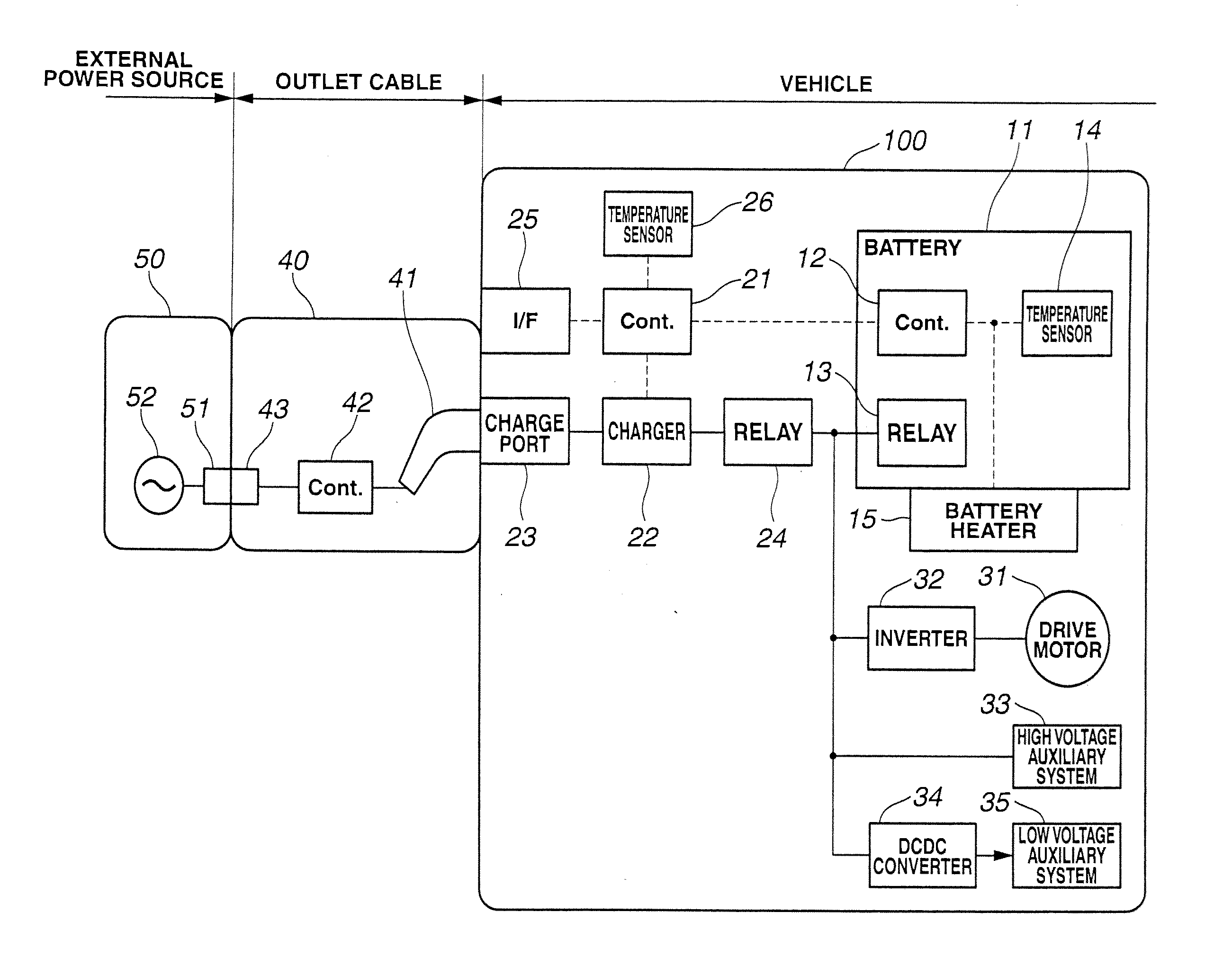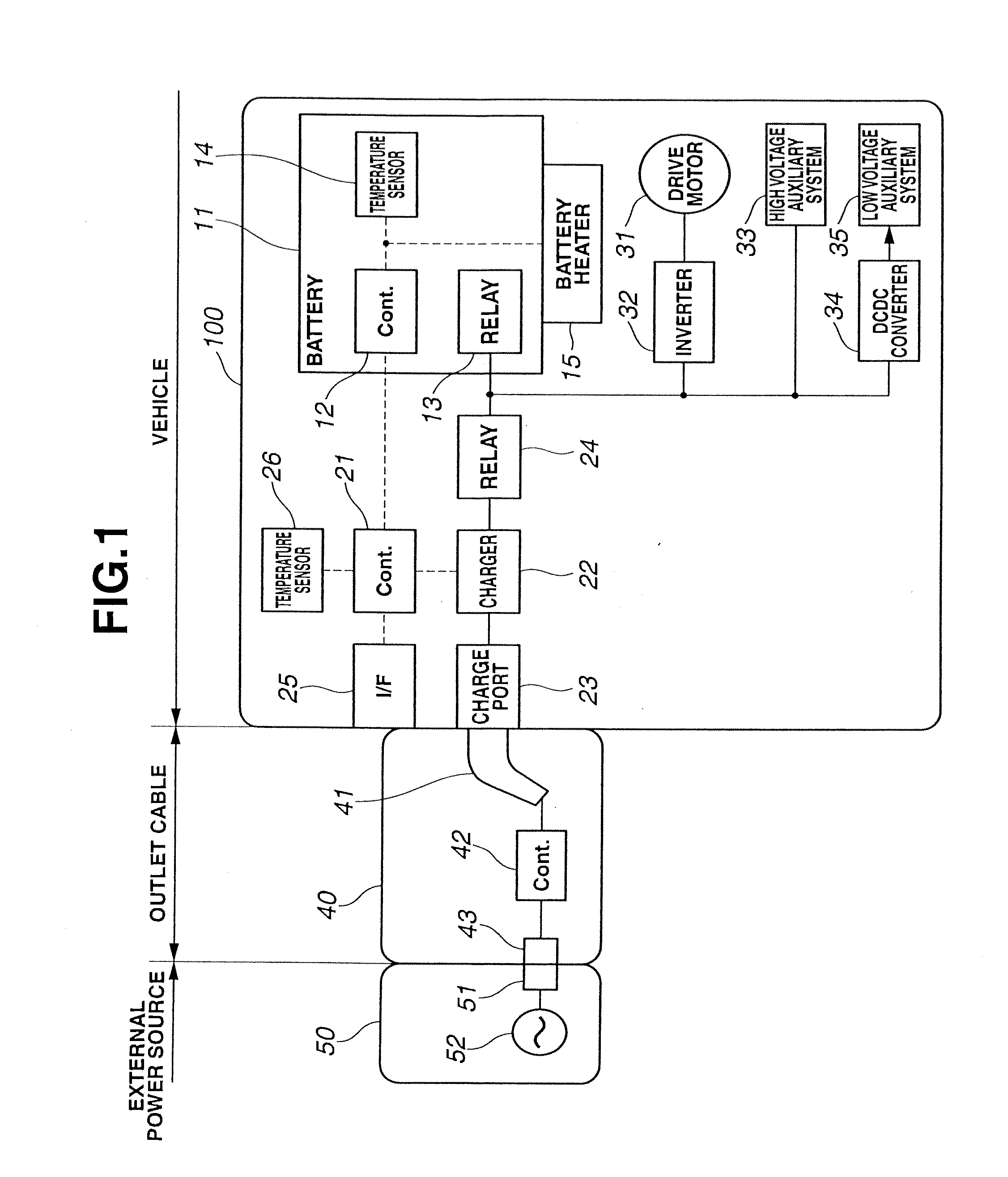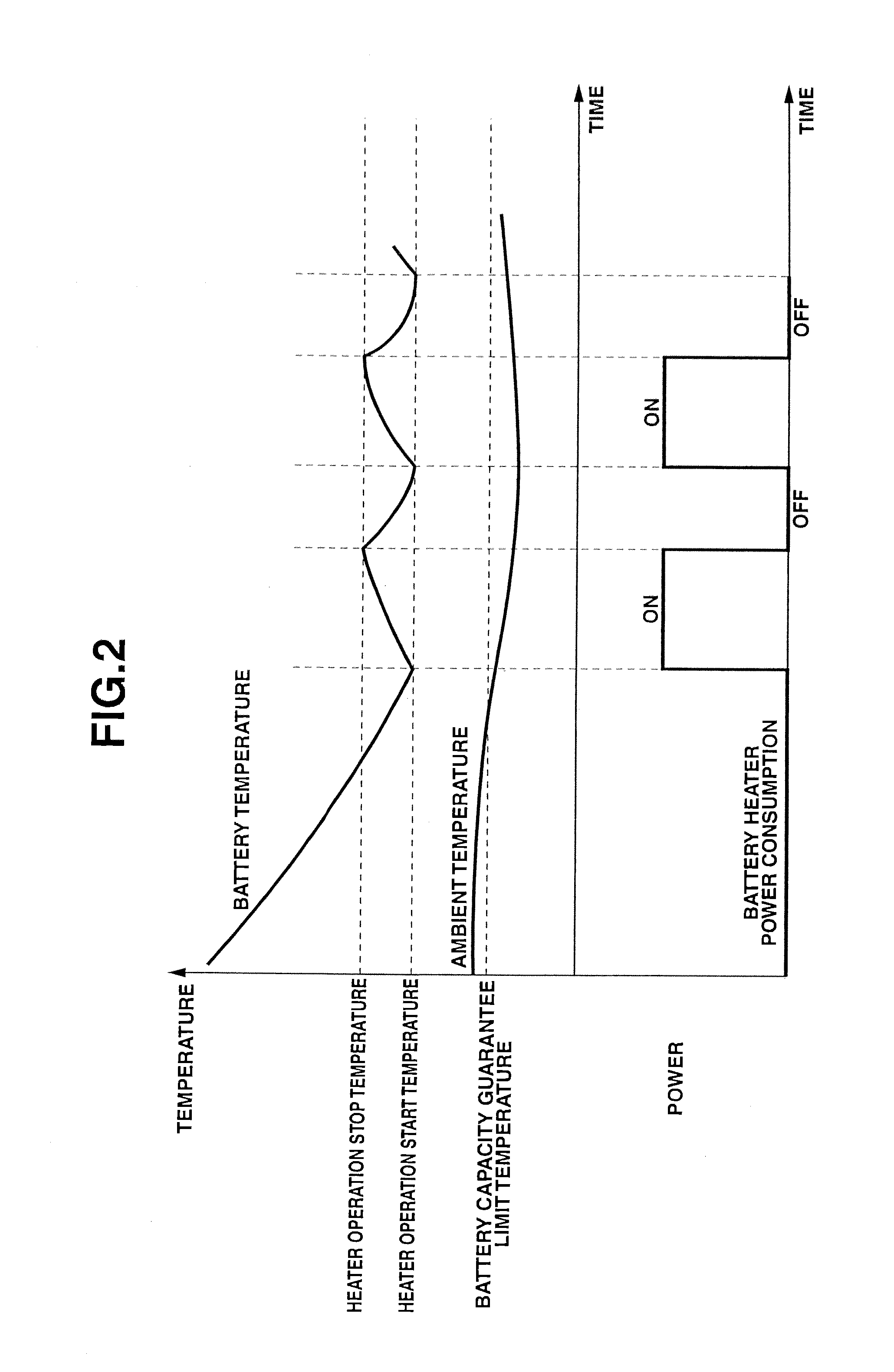Charge control apparatus for vehicle
a technology for controlling apparatus and charging device, which is applied in the direction of battery/fuel cell control arrangement, secondary cell servicing/maintenance, electrochemical generators, etc. it can solve the problems of increasing costs, prolong the charging time period, and avoid the shortage of electric energy at the charge stop time. , to achieve the effect of enhancing the required capacity of the heater
- Summary
- Abstract
- Description
- Claims
- Application Information
AI Technical Summary
Benefits of technology
Problems solved by technology
Method used
Image
Examples
embodiment 1
[0019]FIG. 1 is a general system diagram showing a charge control apparatus for a vehicle according to Embodiment 1. The vehicle to which Embodiment 1 is applied is an electric automobile that can travel using a battery as a sole energy source. Electric vehicle 100 includes electrically chargeable / dischargeable battery 11, and can be driven by converting a direct current power stored in battery 11 into an alternating current power through inverter 32 and supplying the converted power to drive motor 31. Battery 11 is charged by receiving electric power of external power source 50 through outlet cable 40 that connects external power source 50 and electric vehicle 100 with each other. Generally, examples of external power source 50 may include a commercial power source that is used in the case of ordinary charge, and a boost charger that is used in the case of boost charge. FIG. 1 shows the case of ordinary charge. Commercial power source 52 is generally supplied with current through p...
embodiment 2
[0036]Next, Embodiment 2 is explained. The basic construction is the same as that of Embodiment 1, and therefore, only structural features that are different from those of Embodiment 1 are explained. FIG. 5 is a flow chart showing a timer charge control processing that is executed in a charge control apparatus according to Embodiment 2. Although in Embodiment 1, it is judged whether or not the timer charge start time is advanced on the basis of operation / nonoperation of battery heater 15, Embodiment 2 differs from Embodiment 1 in that it is judged whether or not the timer charge start time is advanced on the basis of battery temperature.
[0037]In step S1, it is judged whether or not reservation of a timer charge time zone is made. If it is judged that reservation of the timer charge time zone is not made, the logic flow is ended. If it is judged that reservation of the timer charge time zone is made, the logic flow proceeds to step S2.
In step S2, an amount of shortage of charged elec...
embodiment 3
[0043]Next, Embodiment 3 is explained. The basic construction is the same as that of Embodiment 1, and therefore, only structural features that are different from those of Embodiment 1 are explained. FIG. 7 is a flow chart showing a timer charge control processing that is executed in a charge control apparatus according to Embodiment 3. Although in Embodiments 1 and 2, the required amount of extension of a charge time period by which the timer charge start time is advanced is set on the basis of the case where battery heater 15 is continuously operated during charge of battery 11. That is, the time advanced by the required amount of extension of a charge time period is identical with the time for checking the battery heater operating state and the battery temperature. In contrast, Embodiment 3 differs from Embodiments 1 and 2 in that the operating state of battery heater 15 is predicted with high accuracy and the required amount of extension of a charge time period is computeded on ...
PUM
 Login to View More
Login to View More Abstract
Description
Claims
Application Information
 Login to View More
Login to View More - R&D
- Intellectual Property
- Life Sciences
- Materials
- Tech Scout
- Unparalleled Data Quality
- Higher Quality Content
- 60% Fewer Hallucinations
Browse by: Latest US Patents, China's latest patents, Technical Efficacy Thesaurus, Application Domain, Technology Topic, Popular Technical Reports.
© 2025 PatSnap. All rights reserved.Legal|Privacy policy|Modern Slavery Act Transparency Statement|Sitemap|About US| Contact US: help@patsnap.com



